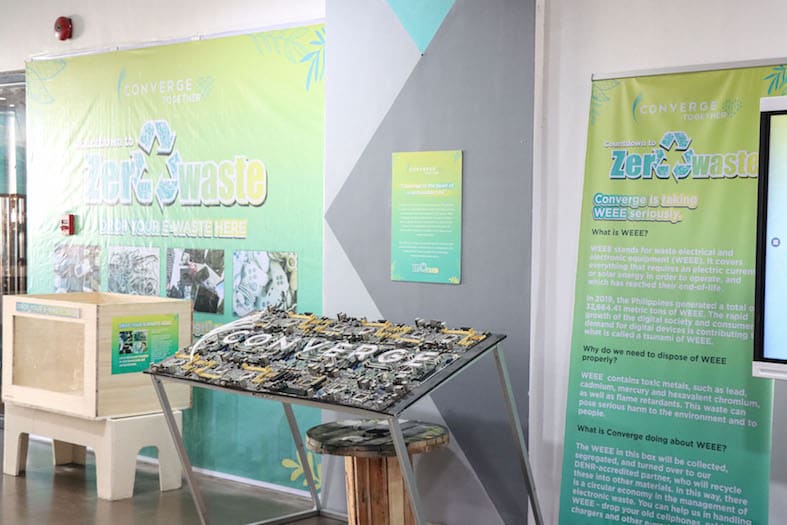“The flurry of activity in infrastructure development augurs well for the country’s sustained economic growth…”
The Cabinet economic cluster appears in a real hurry to get things done.
That’s the impression I got from a recent Saturday News Forum in Quezon City, which I co-host.
The National Economic and Development Authority Board, chaired by no less than the President, had approved on February 2 seven “high-impact” projects that Economic Planning Secretary Arsenio Balisacan said are expected to significantly help the administration achieve its social and economic transformation goal in the medium term.
To give us a better understanding of the nature of these projects,
we invited senior officials from NEDA, Department of Transportation, Department of Public Works and Highways, Land Transportation and Franchising Regulatory Board and the Philippine General Hospital.
NEDA Undersecretary Rosemarie Edillon told us that three of these projects would be funded through official development assistance while one would be implemented under the public-private partnership scheme.
The first of these is the PPP-funded UP-PGH P6-billion Cancer Center, which is the first PPP funded project under the Marcos administration.
The board approved the solicited build-transfer-operate proposal for the cancer center, which will offer comprehensive, high quality and affordable oncology care services.
The 15- to 20-story building will have 300 beds, divided equally between charity beds and private beds.
According to Dr. Jose Rafael Marfori, the hospital will provide a full range of cancer treatments, including radio oncology (radiotherapy), imaging, medical oncology and support for the UP-PGH’s teaching and research activities.
Once completed, he said the facility would be one of the largest cancer centers in Asia in terms of bed capacity.
DOTr Assistant Secretary Leonel Cray de Velez confirmed the approval of the construction of the new Dumaguete airport amounting to P17 billion.
The new airport facility will be built in Bacong, Negros Oriental to replace the existing Dumaguete-Sibulan Airport, which is burdened with physical and operational constraints.
Of the total project cost, P13 billion would be funded through ODA from the Korean government.
The Philippine government, through the DOTr, will shoulder the remaining amount of about P3.9 billion. The project will be implemented within seven years.
ASec de Velez said the DOTr will undertake the MRT 3 Rehabilitation Project costing P29.6 billion.
The project aims to improve MRT 3 capacity by increasing the number of cars and reducing the interval time.
The project involves upgrading MRT 3 to its original as-designed state with provision for capacity expansion in the future.
The DOTr will restore, renew or upgrade all MRT subsystems, including the tracks, signaling system, power supply system, overhead catenary system and communication system as well as maintenance and station equipment.
The project will also involve integrating other MRT 3-related projects such as the common station, the Dalian trains and transition to a four-car train configuration.
This rehabilitation project aims to enhance the safety and quality of service of the MRT 3 as well as promote its use to help alleviate the worsening traffic congestion in Metro Manila.
NEDA also approved the first phase of the Integrated Flood Resilience and Adaptation Project of the Department of Public Works and Highways amounting to P20 billion.
The project aims to mitigate flood damage and improve climate resilience in three major river basins in the country.
According to DPWH Engineer DPWH Engineer Dolores Hipolito, the first phase of the flood resilience project will have the following outputs: improvement of strategic flood risk management planning; development of flood risk infrastructure in three target major river basins, namely Abra, Ranao and Tagum-Libuganon in Mindanao, and strengthening of community-based flood risk management measures. The project will be financed through a loan from Asian Development Bank.
LTFRB official Joel Bolano informed the media during the forum that rather than implement the Libreng Sakay as in the past year along the EDSA Busway, the agency will implement fare discounts to students.
NEDA also approved the Department of Agriculture’s Mindanao Inclusive Agriculture Development Project that aims to increase agricultural productivity, resiliency and access to markets and services of organized farmers and fisherfolk groups in selected areas.
This agriculture development project covers selected ancestral domains in Mindanao from Regions 9, 10, 11, 12, 13 and the Bangsamoro Autonomous Region in Muslim Mindanao.
The NEDA Board likewise approved the utilization of the Japan International Cooperation Agency loan balance of P2.12 billion for the Communication, Navigation, Satellite Air Traffic Management maintenance and resiliency enhancement.
The approval includes a 60-month loan validity extension from 2023 to 2028 to cover the preceding intended utilization.
NEDA also greenlighted the DOTr’s request for changes in scope, as well as increase in cost and extension of the implementation period for the Davao Public Transport Modernization Project.
The project involves delivering a modern, high-priority bus system for Davao City which would prioritize interconnected bus services along 29 routes.
The implementation period for the project is extended from 2023 to 2029.
The flurry of activity in infrastructure development augurs well for the country’s sustained economic growth, and from our vantage point, precisely what the doctor ordered to speed up economic rebound in the post-COVID period.
(Email: ernhil@yahoo.com)








